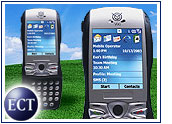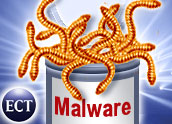
Microsoft has announced the formation of a new Microsoft Radio Frequency Identification (RFID) council that will focus on promoting RFID technology. The group will look at RFID requirements and address how best to take advantage of today’s technology to make it easier for retailers and manufacturers to track and ship merchandise.
During the announcement, the company pointed to a growing number of vendors that are beginning to build RFID technologies to enhance control of business processes, improve inventory visibility and provide better customer service for manufacturers, distributors and retailers.
RFID combines the benefits of the silicon chip and radio frequencies to provide increased levels of product and asset visibility across the supply chain.
In addition to forming the council to promote RFID, Microsoft is focusing on providing a platform on which developers can create RFID technologies to reduce human error in data collection, reduce inventories and improve product availability while at the same time respecting privacy expectations and concerns around the use of RFID technology.
RFID Council Meeting
The company plans to hold the first Microsoft RFID Council meeting in April and reportedly has several partners signed up already, including Accenture, GlobeRanger, HighJump Software, Intermec Technologies, Manhattan Associates and Provia Software.
“With RFID in the early stages of adoption, we are continuing to expand and evolve our partner-driven strategy based on the needs of the industry,” said Javed Sikander, program manager for RFID strategy at Microsoft.
“There is a wide spectrum of partners building RFID solutions on the Microsoft platform today,” said Sikander. “The formation of the Microsoft RFID Council is part of our commitment to continue to work closely with our customers and partners to ensure they receive the greatest value and opportunity when building their RFID solutions with Microsoft technologies.”
Ecosystem of Partners
An ecosystem of partners — spanning RFID hardware vendors and retail services providers — is using the Microsoft platform to add RFID controls through technologies such as Windows CE, SQL Server and BizTalk Server for data collection and management. According to Microsoft, these partners are working with Visual Studio and Web Services Enhancements (WSE) for Microsoft .NET to create Web services-enabled RFID technologies.
Microsoft also announced it has joined EPCglobal, an organization that is working on development of industry-driven, open standards for the Electronic Product Code (EPC) network to support use of RFID.
“RFID is a major initiative for the METRO Group,” said Zygmunt Mierdorf, executive vice president for IT and human resources at METRO Group. “METRO will use a number of platforms and is very pleased Microsoft has joined EPCglobal and is making significant investments to make this technology available using open standard technologies. Microsoft is working with the METRO Group to support this first large implementation.”
RFID in Action
Several independent software vendors (ISVs) have announced their support for the Microsoft RFID initiative. For example, Accenture is working with Microsoft and Manhattan Associates to develop a new technology designed to help manufacturers comply quickly with retailers’ RFID mandates.
The companies will provide a range of EPC-compliant RFID services to help manufacturers realize benefits associated with using the new technology, including enhanced supply-chain efficiencies and improved warehouse management.
Meanwhile, Manhattan Associates is using Microsoft as a platform for its own RFID solutions. The company’s “RFID in a Box” software offers a package of “source-to-consumption” applications designed to simplify implementation and help companies meet compliance requirements.
Finally, Provia Software is using Microsoft RFID tools to help customers implement supply-chain tracking, including RFID-enabled warehousing, transportation and yard management. According to the companies, these technologies can even integrate with Web-based visibility tools to create a real-time data stream.











































